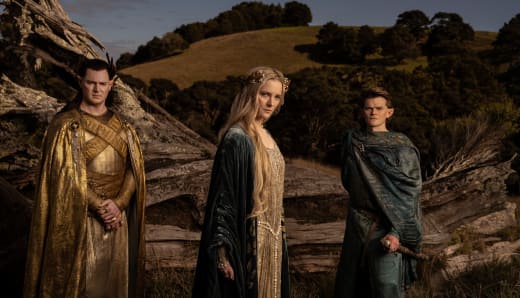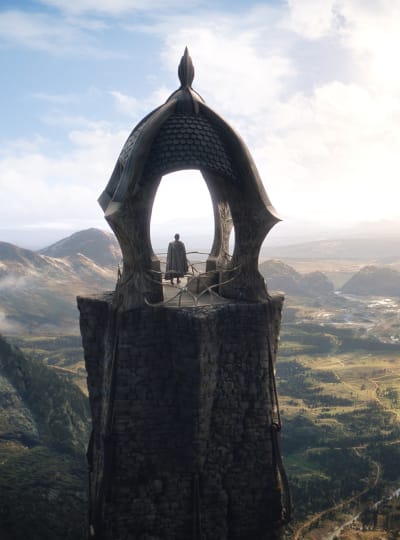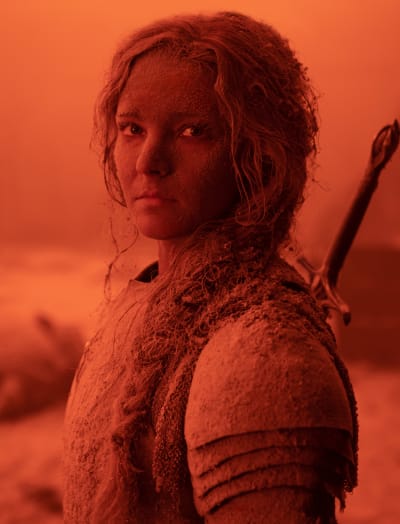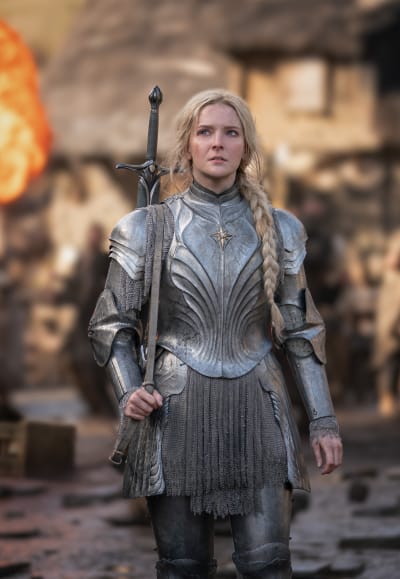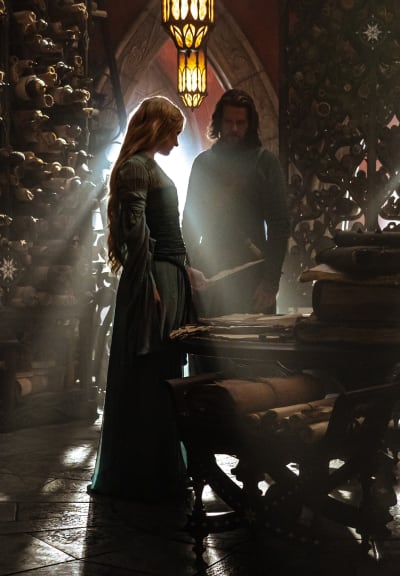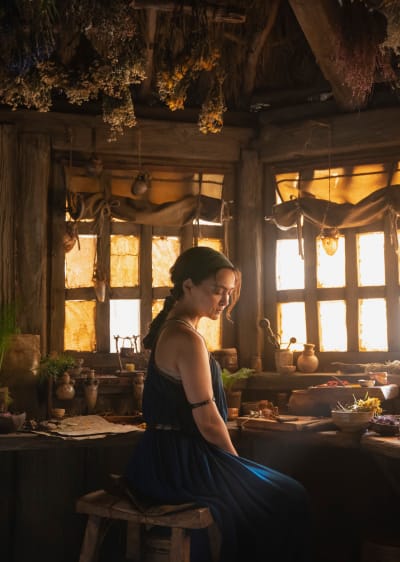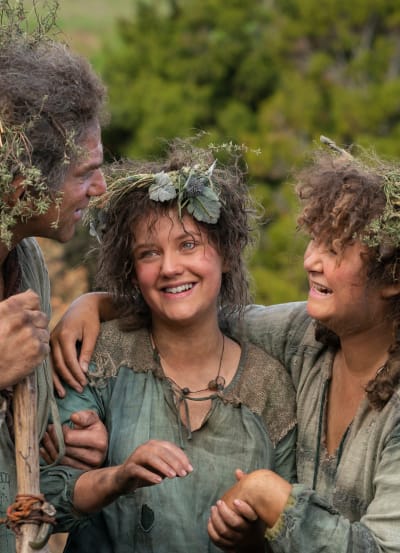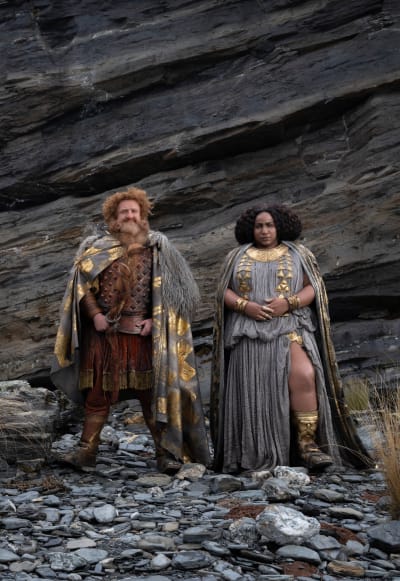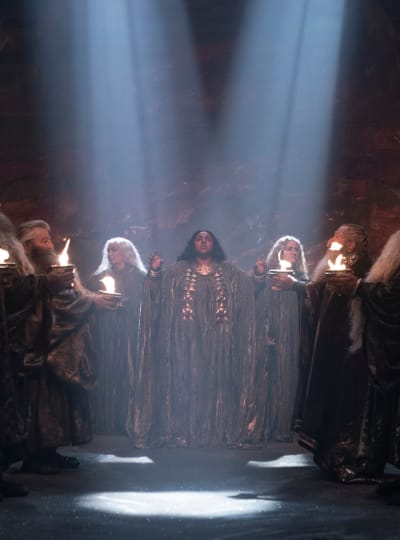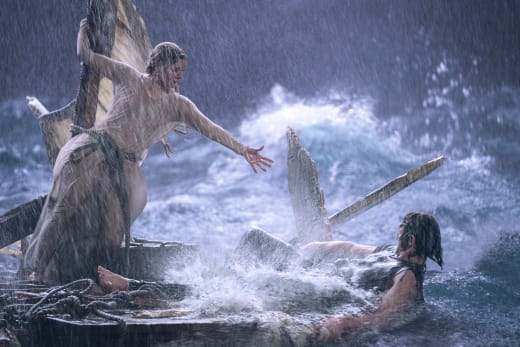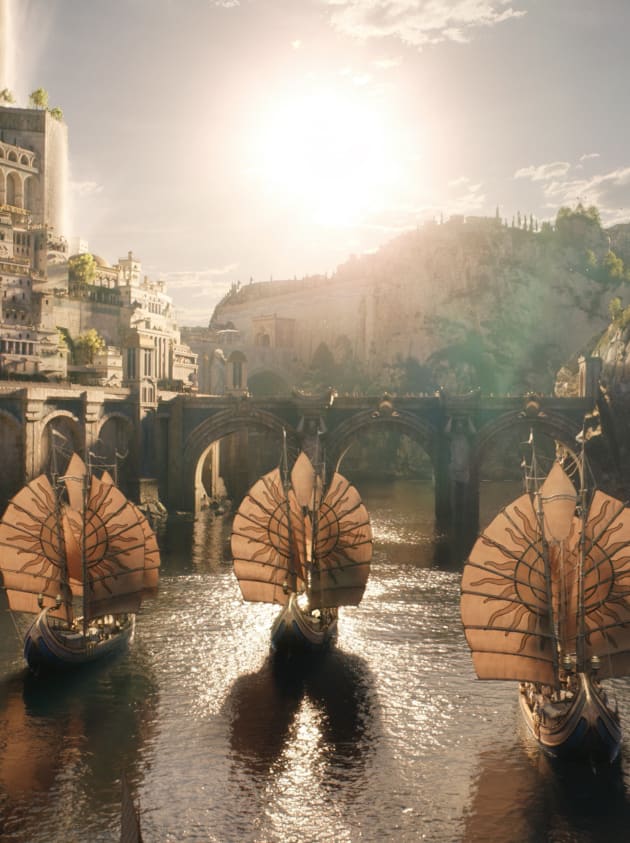
Rings of Power finally debuted on Prime Video.
From the outside, it looks like a big success for Amazon Studios.
We’ve asked staff writers Mary Littlejohn, Diana Keng, and Denis Kimathi for their thoughts on the two-episode premiere.
What were your expectations going into Rings of Power?
Mary: I’d say I had mid-level expectations. I loved the original Lord Of The Rings trilogy, but I wasn’t a big fan of The Hobbit franchise. I love Tolkien’s world, so I was willing to give it a try!
Diana: I expected high-quality visual effects and sweepingly grand settings. Narratively, I cautiously hoped for a story that was both innovative and true to the spirit of the Lord of the Rings.
Since the source material isn’t a novel as much as historical lore, the writers have a lot more leeway to create characters and adventures wholly new to fans of the series.
Denis: For such a budget, I expected it to look like a dream visually.
Storyline-wise I didn’t know what to expect. I have never read the books, but I’ve watched all the films.
Maybe it’s because I watched the films over a decade and a half later, but they weren’t something I was keen about.
I had a good time when watching, but I didn’t think of them after I was done. So, little to no expectations.
How did the premiere episodes meet, exceed, or fail to live up to those expectations?
Mary: It exceeded them for sure! So far, I’m totally drawn in.
The exposition at the beginning was a lot, but once the story got going, it felt engaging, and that “prologue” helped give context to what followed. Howard Shore’s score does a great job at giving everything that really epic feel, and I’m so happy he’s back for this series.
Diana: The premiere did a great job introducing the characters. It struggled a little with the mountain of exposition it presented, leaning heavily on the assumption the audience would have some knowledge of the characters and conflict.
I love how Galadriel’s character is being shaped and was pleasantly surprised by the other plot threads woven in.
It’s an ambitious number of characters and developments to bring together. Only time will tell if they’ll be incorporated successfully.
Denis: They were great! They felt like a well-written narrative that appeals to people familiar with the world and newcomers alike. While I love a story with little to huge twists, a chronological story is also appealing.
I also love how long the episodes are. It gives time and freedom to introduce characters and storylines without it feeling like they have places to be.
The show is visually stunning. What impressed you the most about this early world-building?
Mary: Khazad-dûm was incredible!! I got goosebumps!
I love the use of the maps as a way of keeping the audience on track. The whole world is so gorgeous and vast, and it’s filmed so crisply you can see every detail. Every scene is a feast for the eyes!
Diana: Because it is all done so well, nothing specifically sticks out for me. I’d say the variety of settings they’ve introduced is impressive. The Lord of the Rings and Hobbit films have largely been quests that move systematically through the geography of Middle Earth.
Here, we’re jumping around a lot more, and the diversity of the environments is more dramatic.
Denis: It was the sheer innovativeness of this world. It subverts all the notions we have in our heads based on the world we live in.
I remember being impressed by how detailed the maps were in the films, and even this time round, it was still impressive.
Also, before the sun rose? I loved how trees provided light. It made the threat they were facing appear grander.
You can never pull the sun out of the sky, but deforestation is real.
What characters or stories do you think have the most potential for season- and series-long arcs?
Mary: I’m already incredibly invested in Nori and The Stranger’s relationship — what an entrance! — and how Poppy will figure in it all. Bronwyn is an awesome character, and I am so curious to see more of the dynamic between her, Arondir, and Theo.
Galadriel’s quest is less interesting to me because it feels like it’s something we’ve seen before, not just in Tolkein but in fantasy stories in general.
Diana: Galadriel and Elrond’s stories, obviously, because we know they live on to become their legendary selves in the later stories. Arondir and Bronwyn are intriguing.
Hopefully, their story is more than a requisite romance.
I suspect Nori and The Stranger could be the darkest of the threads and will probably be the driving force behind the major conflict of the series.
Denis: I’m sure we haven’t even met all the main characters yet. Galadriel’s story is one I find drawn into. I mean I better be because she is very instrumental to this story. I also like how her quest is not driven by romantic love. That would have been basic.
Until we meet all the characters, I will reserve my emotions before investing them in a make-believe person on a small screen — if I ever do.
Can Rings of Power and House of the Dragon exist at the same time and find long-term success?
Mary: There is a distinct difference in tone between Martin’s and Tolkein’s worlds, despite both being high fantasy. There seems to be very little joy or wholesomeness in Westeros, unlike Middle-Earth, where there is inherent goodness, and it’s very clear-cut good vs. evil.
I think it’s possible to enjoy both, but they’re not scratching the same itch. At this point, I’ll happily take Harfoots and elves over incest and child abuse. (And I was a massive Game Of Thrones back in the day!)
Diana: Absolutely. They serve different purposes for fantasy audiences. Tolkien’s work will never cross to the sensational sex and gratuitous violence of the GoT world.
Furthermore, House of the Dragon concerns itself with the politics and conflicts of humans, where right and wrong are subjective, while the Rings of Power focuses on the eternal conflict of good and evil.
Denis: Ducks and chickens. While they both are birds, they are quite different.
It is unfair to compare these shows. The only thing they share is the fantasy genre. Otherwise, they deal with entirely different topics. Even with the grandeur associated with Rings of Power, it doesn’t beat the sex, gore, and politics of Westeros.
And even with the thrill associated with House of the Dragon, it doesn’t beat the sheer beauty and expanse of Middle-Earth. The audiences might overlap slightly, but the TV-MA and TV-14 ratings set them apart.
Rings of Power is also available in more countries than House of the Dragon.
What would you have done differently to kickstart Rings of Power?
Mary: It’s hard to say! I think they’re done a great job so far. It does throw me off a bit sometimes how clean and made-up the elves look (one of the drawbacks of high-def, I suppose), given how filthy the other characters are. But that’s a small quibble.
In general, it’s nice to be back in Middle-Earth and not have any idea how the story is going to go!
Diana: I might’ve chosen to introduce fewer storylines in order to develop a better understanding of the characters. I’m not loving Nori so far, but I might’ve connected more if there were more Harfoot scenes.
Denis: I’m here for the entertainment value it offers. It has done just that, so there is nothing for me to change. As the show progresses, I might have some things that don’t sit right with me but so far, so good.
————————————————————-
What did you think? Join the conversation by sharing your answers to the questions above in the comments below!

